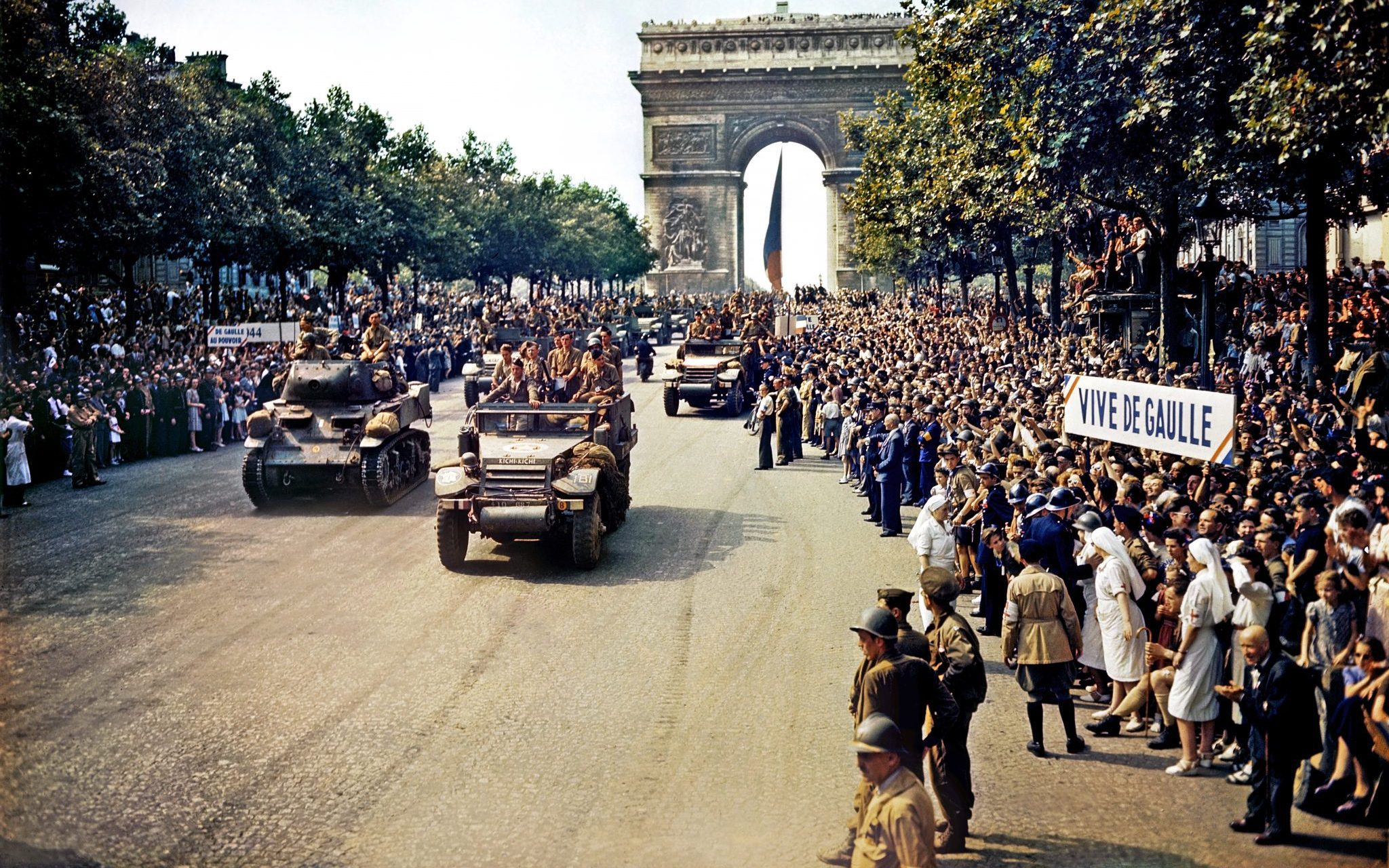By Rich Acritelli
“Make peace, you fools!” — Field Marshal Gerd von Rundstedt
These were the words of one of Hitler’s most capable field marshals once he determined the Allies would win World War II.
The summer of 1944 was an extremely difficult phase of the war for Nazi Germany, marking the beginning of the end of the Third Reich. On June 6, 1944, D-Day, over 156,000 Allied soldiers stormed the beaches of Normandy, beginning their eastward assault through the European continent.
Some 78 years ago, Gen. Dwight D. Eisenhower was on the cusp of major victories against the once-vaunted German army. The German generals who in 1940 had conquered France watched their armies retreat from the Allied forces. Their only chance for victory required pushing the massive and growing Allied invasion force back into the English Channel, but overwhelming reinforcements continued to land ashore, and the Wehrmacht armed forces began their eastward retreat.
Despite the German army reeling from the establishment of an Allied bridgehead at Normandy, the loss of Carentan and the taking of the port of Cherbourg, the Nazis were still determined to fight. To slow down the Allied advance, the Germans used the brutal hedgerow terrain to limit the Allied movement and this strategy increased Allied casualties. Whereas the Germans halted Allied gains at this stage of the fighting in France, Eisenhower was determined that his forces’ gains should be swifter against the enemy.
Eisenhower decided that he must achieve a quick, dramatic conquest over Nazi-occupied territories. While toppling German strongholds was essential to the war effort, the Allies required a symbolic victory on French soil. For these military and political reasons, Eisenhower set his sights on the “City of Light.” By July of ‘44, American, British, Canadian and Free French forces were determined to liberate Paris.
En route to Paris
There was immense pressure on Eisenhower to take firm control of the ground war. Because of this, he opted to deploy the powerful but controversial Gen. George S. Patton and his Third Army. Patton was expected to push his army through the opening of the German lines, softening these defenses and exploiting any weaknesses. Beginning July 25, 1944, and over the course of two days, American bombers blew a massive hole within the lines of the German military.
As the resistance weakened, German forces were gradually pushed back toward Paris. Then Patton, who waited several months to gain another command after the “slapping incidents” in Sicily, fought the enemy with an immense fury. Patton never seemed to be concerned about his own flanks, and it appeared that he constantly ordered his officers to stay on the offensive. The Third Army’s unstoppable forward movement helped to rapidly destroy any remaining German presence in Western France.
By the first week of August, the Allies had emerged as the dominant force in Western Europe, which would hold true until the end of the war. As Patton pushed onward, the German high command realized that Paris would be the next target of the Allied invasion. Paris had always been the heart of France — culturally, politically and militarily. Four years earlier, French citizens openly wept at the sight of the German occupation of their beloved capital. Now they wept tears of joy at the sight of its liberation.
On Aug. 25, the historic city of Paris was liberated from Nazi occupation. The freeing of the Parisians marked a sense of relief and optimism, pointing to a favorable outcome of the war. For once, the world began to see Nazi tyranny for what it was: temporary.
Hitler ordered the commander of his forces, Gen. Dietrich von Choltitz, to destroy this city and its historic landmarks. However, the German officer refused the orders and surrendered the city on Aug. 26.
In one of the most moving scenes throughout the war, Gen. Charles de Gaulle led his French troops through the streets of Paris and down Avenue des Champs-Élysées. As American soldiers looked east, they were greeted with kisses from young ladies and grateful handshakes from Parisians who hoped for the day when German forces would be decisively driven from their city.
The fall of Paris marked the start of a progression of major military setbacks that expedited the end of Hitler’s rule. In eight months’ time, he would be destroyed for good. This summer, we can reflect upon the sacrifices of American soldiers. During this time period in 1944, they freed the French people from Hitler’s tyrannical rule.
Rich Acritelli is a history teacher at Rocky Point High School and adjunct professor at Suffolk County Community College.







